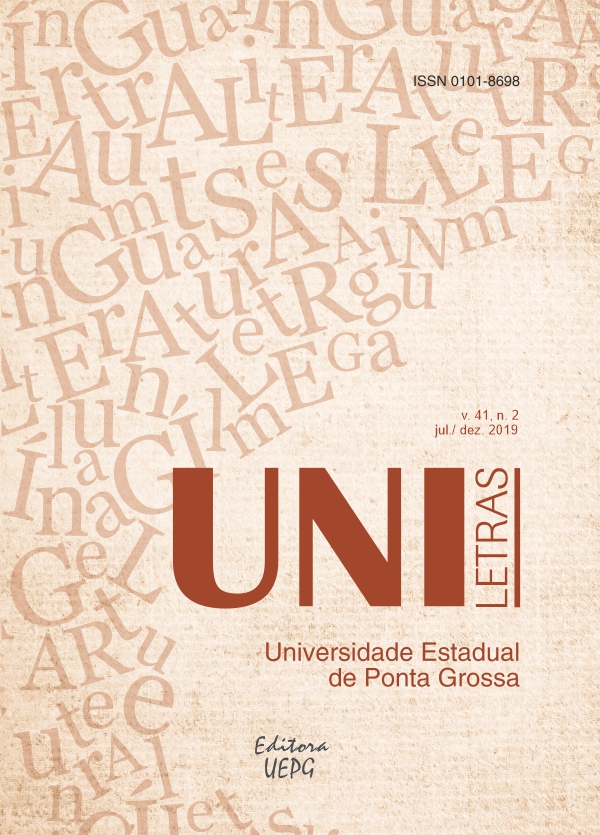"A FÁBRICA DO FEMININO” E A PÓS-MODERNIDADE EM CONSUMO
Abstract
Studying the rise of the female voice in contemporary poems requires a keen eye on images produced within the consumer market. To understand oneself as a female subject means to understand the herself’s representations, because after all how to identify as a woman? At the same time, working on the poem’s language in the postmodern world implies questioning the symbologies that are for sale, the consumption’s impacts and what this all represents for the poet. Therefore, contemporary poetry in the female voice describes the double task: looking at the self, language and its potential. Based on these questions, the work “The factory of the feminine” by Glenadel (2008) is presented. Thus, this article aims to study the poems "A Fábrica do feminino" and "Espelho", through the postmodern conception that addresses the logic of the consumer market, discussed together with the Jameson’s notes (1985).
Downloads
Downloads
Published
Issue
Section
License
Authors that publish in the journal agree with the following terms:
a) The authors keep the copyright and grant to the journal the rights of the first publication, with the work simultaneously being licensed under the Creative Commons Attribution License that allows the sharing of the work with the recognition both of the authorship and the initial publication in this journal.
b) This journal provides immediate public access to all of its content, following the principle that making scientific knowledge freely available to the public provides greater worldwide democratization of knowledge. For more information about this approach, visit Public Knowledge Project, a Project that developed this system to improve the academic and public quality of research, distributing OJS as well as other softwares to support the publication system to public/open access to academic sources. Names and e-mail addresses in this website will be used exclusively for this journal purposes, not being available for other ends.

This work is licensed under a Creative Commons Attribution 4.0 International License.





